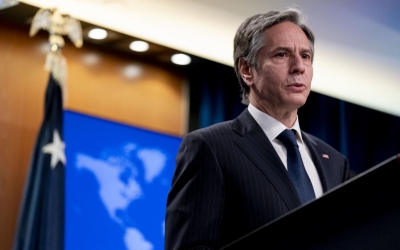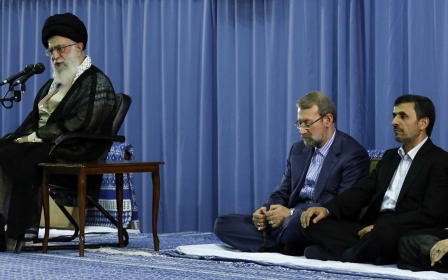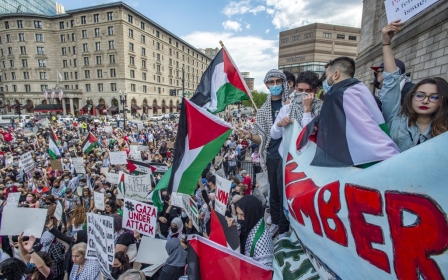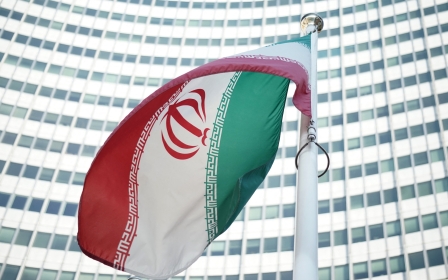Netanyahu, alongside Blinken, says US should avoid return to Iran nuclear deal
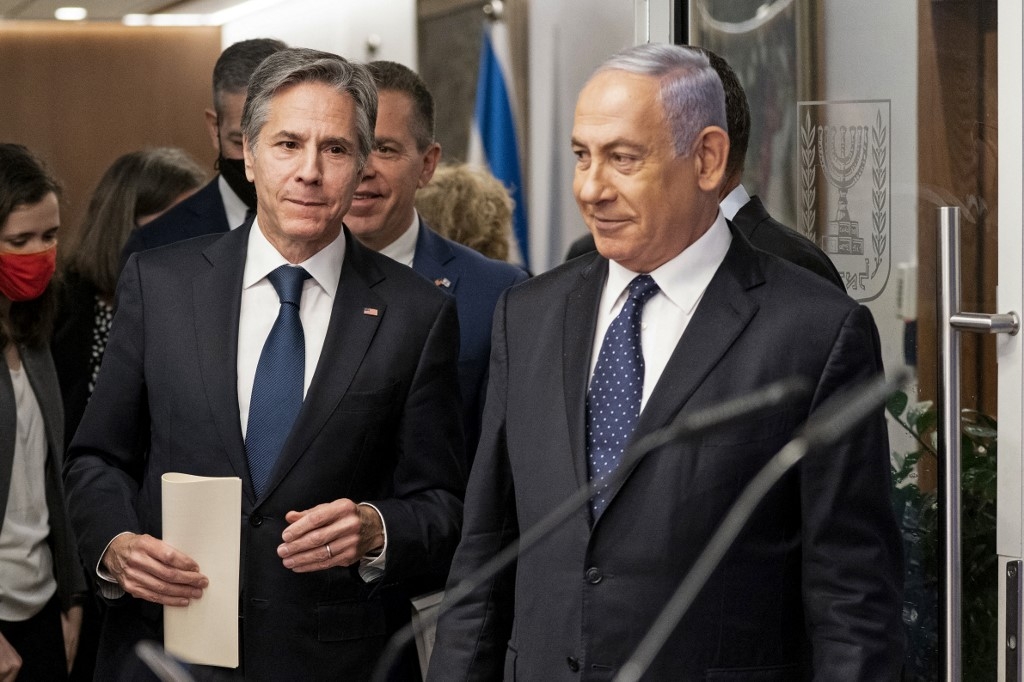
Israeli Prime Minister Benjamin Netanyahu said on Tuesday, during a news conference alongside US Secretary of State Antony Blinken, that Washington should not rejoin the Iran nuclear deal.
"I hope that the United States will not go back to the old JCPOA [Joint Comprehensive Plan of Action] because we believe that that deal paves the way for Iran to have an arsenal of nuclear weapons with international legitimacy," Netanyahu said.
"We also reiterated that whatever happens, Israel will always reserve the right to defend itself against a regime, committed to our destruction, committed to getting the weapons of mass destruction for that end."
Speaking after Netanyahu, Blinken did not push back but rather emphasised the US would consult closely with Israel on negotiating a return to the 2015 nuclear accord.
"We will continue to strengthen all aspects of our long-standing partnership," Blinken said.
"And that includes consulting closely with Israel, as we did today on the ongoing negotiations in Vienna, around a potential return to the Iran nuclear agreement."
The Joint Comprehensive Plan of Action (JCPOA), signed by the US, Iran and world powers in 2015, lifted sanctions against Tehran after it scaled back its nuclear programme. Israel had been vehemently opposed to the deal when it was first signed under the administration of former US President Barack Obama.
The fourth round of nuclear negotiations began in Vienna earlier this month, three years after former US President Donald Trump left the deal and reimposed crippling sanctions on the Islamic Republic, which in response began loosening its commitments to the pact.
Since announcing its intention to renegotiate the nuclear deal, the Biden administration has repeatedly said it would consult with Israel to ensure that the new agreement would not compromise its regional security.
Biden's Iran envoy Rob Malley said in March that both the US and Israel intended to avoid the same confrontation in regards to Iran that took place during the Obama years.
Committed to Israel's right to defend itself
During Tuesday's news conference, Blinken - who is currently on a visit to the Middle East that also includes trips to the occupied West Bank, Egypt and Jordan - said that Washington would continue working with Israel to ensure it maintains the country's security needs.
"I underscored to the Prime Minister something that President Biden made crystal clear throughout the violence, the United States fully supports Israel's right to defend itself against attacks such as the thousands of rockets fired by Hamas indiscriminately against Israeli civilians," Blinken said.
The Biden administration has repeatedly used the phrase "Israel's right to defend itself" in the last few weeks, while refusing to criticise any actions by Israel, including an 11-day bombing campaign of the besieged Gaza Strip that killed at least 248 Palestinians, including 66 children.
While taking a hard line against Hamas, portraying the movement as the main aggressors, Blinken said earlier this month that the recent bout of upheaval will not stop plans to move forward with nuclear negotiations with Iran, despite a call from Republicans to scrap the plans over Tehran's alleged support of the Gaza-based movement.
"I don't have anything to offer on whether there is Iranian involvement or not in what's taking place [in Israel]," Blinken said.
"But I would only say that when it comes to any of the malign activities that Iran may or may not be engaged in - whether it is support for terrorism, whether its efforts to destabilise other countries, whether it is other actions that we find objectionable - that only underscores the importance of doing everything we can to make sure that Iran never requires a nuclear weapon."
Middle East Eye propose une couverture et une analyse indépendantes et incomparables du Moyen-Orient, de l’Afrique du Nord et d’autres régions du monde. Pour en savoir plus sur la reprise de ce contenu et les frais qui s’appliquent, veuillez remplir ce formulaire [en anglais]. Pour en savoir plus sur MEE, cliquez ici [en anglais].


